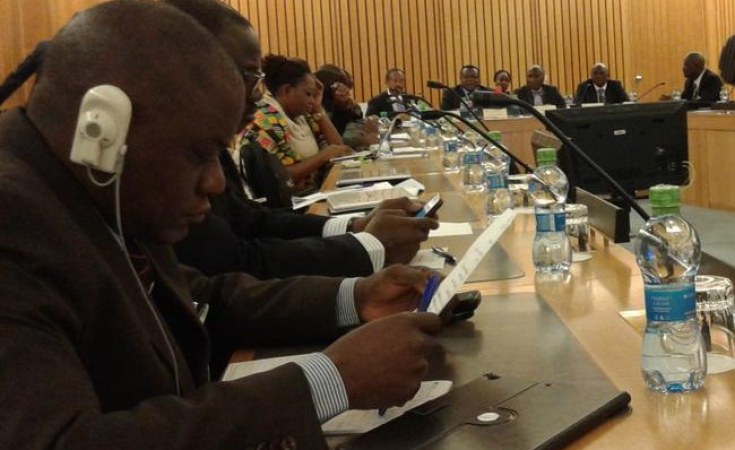Addis Ababa — Africa needs huge financial investments to achieve its development goals, UN Under Secretary General Carlos Lopes told delegates at a finance conference in Addis Ababa.
“We have major deficits in infrastructure as you know - massive investment in transport, energy, ICT and water could strengthen the platform for development”, said Lopes, who heads the UN Economic Commission for Africa.
Lopes spoke at a session on financing for sustainable development at the eighth annual conference of the Africa Union and the ECA taking place in the Ethiopian capital. The week-long conference has brought together various stakeholders, including former heads of state, finance and planning ministers and governors of central banks.
“Infrastructure requirement has been projected at about U.S.$ 1 billion per year”, Lopes explained, saying that a priority action plan adopted by African heads of state requires 68 billion to implement in the next five years. He said although the continent is endowed, “transformation of these resources in other parts of the world, instead of Africa, continues to leave millions of Africans scrambling for low value-addition jobs”.
Prodded by the session’s moderator, AllAfrica Executive Chair Amadou Mahtar Ba, on how the continent’s resources could be used without compromising the future, another speaker, Achim Steiner of the UN Environment Program said risks that the continent faces today are not abstract. “Carbon dioxide may seem a long away from an African farmer’s next harvest" he said. "If you start recognizing the risks, you certainly start creating sets of policy settings”. He said that way, Africa will be able to turn risks into opportunities.
Steiner reminded stakeholders that while energy planners in previous years had discredited renewable energy as irrelevant for developing economies, that has now changed. He said the Global Trends in Renewable Energy Report reveals that 2014 saw a big investment in infrastructure related to naturally replenishable energy sources. This, Steiner said, excludes hydro.
“We take the strictest definition in technological terms of solar, geothermal and wind”. He urged emerging economies to play their part in what might be “an unfolding disaster in emission terms”.
Several environmentally friendly low-cost energy projects are currently under way on the continent, including in South Africa, which currently derives majority of its energy needs from coal.
South African Finance Minister Nhlanhla Nene announced that the country hopes to be able to generate 10,000 megawatts to its main grid, using renewable energy initiatives. “Investing in green economies is not just good investments, it’s investing in the future”, he said.
Nene said his country’s current challenge of slow economy growth has necessitated the need to relook its investment strategy.
Other speakers highlighted the role of domestic financing as a potential driver of future investment. “There should be universal access to banking as there are to education and health care”, the representative of the United Nations Industrial Development Organization, Ludovico Acorta, urged. He added that there also be a focus on Small and Medium Enterprises as that will be the “backbone of growth in the next 20 or 30 years”.
Ghana’s Finance Minister, Seth Terkpeh, cautioned the group that while domestic resource mobilization is the primary focus, "this must leverage continental institutions as well as the capital market". Tarkpeh said his country is good example of rapid growth, but that it has recently “taken a hit” due to a shortfall of the prices of three of its major commodities: gold, cocoa and now crude oil.
The conference which ends this week has focused on the implementation of Agenda 2063 - the African Union’s development strategy adopted at its 50th anniversary.


